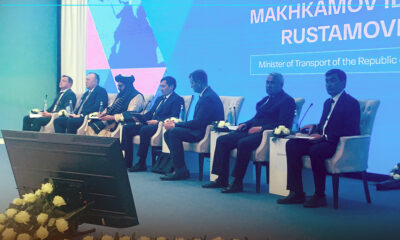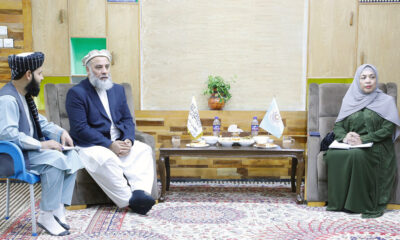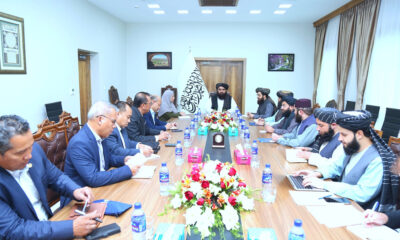Latest News
NATO to Decide on Afghanistan Troop Surge in a Month
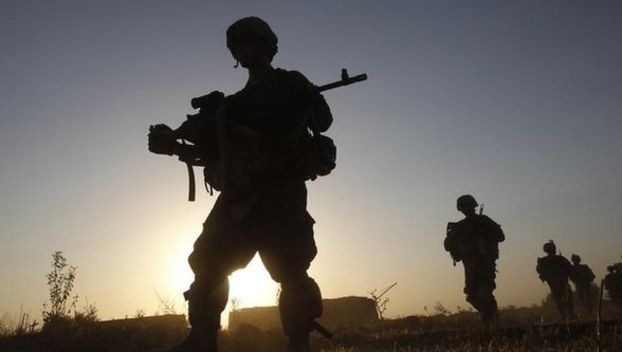
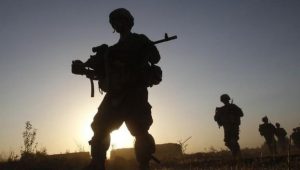 NATO says it will take a month to respond to Washington’s demands for alliance member states to send more troops to Afghanistan.
NATO says it will take a month to respond to Washington’s demands for alliance member states to send more troops to Afghanistan.
During a meeting of the NATO Military Committee in Tirana of Albania on Saturday, defence chiefs from 29 members of the organisation “recognised the need to fill the current… shortfalls” in troops, according to group president General Petr Pavel.
Speaking to a small group of reporters, Gen. Curtis Scaparrotti, the head of the U.S. European Command and Supreme Allied Commander of Europe, said that he expects to have a “full picture” on NATO commitments by October.
“There is still a lack of clarity which positions, which functions, to focus their contributions,” said Czech Gen. Petr Pavel, Chairman of the NATO Military Committee. Speaking at a news conference, Pavel added that the recently announced U.S. strategy provides a clearer picture of the way forward, but the alliance won’t make final troop decisions until another conference in October.
The meeting comes months after, the Pentagon Chief Jim Mattis told NATO allies they must finish the job in Afghanistan or risk allowing the insurgency to bloom.
“The bottom line is that NATO has made a commitment to Afghanistan for freedom from fear and terror, and freedom from terror demands that you can’t let this be undone,” he said in June.
NATO says “more than 15” countries have pledged additional support, but has yet to give details on extra troop numbers.
Albania, which has 83 soldiers in Afghanistan, has said it is ready to send about 30 more.
Months ago, NATO Secretary General, Jens Stoltenberg said that implementation of reforms, having reliable security institutions and fighting corruption are conditions for continuation of the alliance support in Afghanistan.
“It is condition based operation and what we want in return is to implement reforms and to build reliable security institutions and also fight corruption,” he said in June.
However, the Afghan President’s Office Deputy Spokesman said that the government is in the process of bringing reforms in the state institutions. “Reform is our premier goal. No development could be made in fight against corruption as long as reforms not been brought into the civil and military institutions,” Dawa Khan Mina Pal said.
With Inputs from AFP and Washington Post

Latest News
Girls’ education is a ‘vital issue’ for Afghanistan: Karzai

Former president Hamid Karzai said in a meeting with Iran’s ambassador and special representative, Hassan Kazemi Qomi, that education of girls was a “vital issue” for Afghanistan.
Karzai said he appreciated Iran’s cooperation and its standing with the Afghan people, especially Iran’s contributions to education in Afghanistan.
During the meeting, Karzai said peace and stability in the region are in the interest of all regional countries.
Latest News
Uzbekistan’s humanitarian aid arrives in Balkh

A shipment of humanitarian aid from Uzbekistan was handed over on Thursday to the local officials of Balkh province in the trade port of Hairatan.
Local authorities said the aid, which includes flour, oil, wheat, sugar and meat, has been handed over by Uzbekistan’s Surkhandarya governor to the governor of Balkh.
The governor of Surkhandarya stated the purpose of sending this aid was to support the people of Afghanistan and stressed the need for the development of good relations between the two countries.
Latest News
Afghanistan’s problems caused more damage to Pakistan than 3 wars with India: Durrani

Islamabad’s special envoy for Afghanistan Asif Durrani said on Wednesday that Pakistan has suffered more due to Afghanistan’s internal situation than Pakistan has suffered in three wars with India in terms of blood spilt and finances drained.
Durrani said at a one-day International Conference titled “Pakistan in the Emerging Geopolitical Landscape”, which was organized by the Institute of Strategic Studies Islamabad (ISSI) and the German Friedrich Ebert Stiftung (FES), that over 80,000 Pakistanis died in the two decades of the War on Terror and that his country was still counting its dead and injured.
“After the withdrawal of NATO forces, it was hoped that peace in Afghanistan would bring peace to the region. However, such expectations were short-lived,” he said.
He also stated that attacks by the Tehreek-e-Taliban Pakistan (TTP) militant group on Pakistan’s border areas increased by 65 percent, while suicide attacks increased by 500 percent.
“The TTP’s enhanced attacks on Pakistan while using Afghan soil have been a serious concern for Pakistan. Another worrying aspect is the participation of Afghan nationals in these attacks,” he said.
Durrani also said Pakistan had suffered geopolitically since the Soviet Union invaded the neighboring country.
“The post-9/11 world order has negatively impacted Pakistan. Apart from losing 80,000 citizens’ lives, including 8,000 law enforcement agency personnel, the country’s economic opportunity cost is estimated at $150 billion,” Durrani said.
Talking about the future outlook for Pakistan in the regional context, Durrani said that while “our eastern neighbor is likely to continue with its anti-Pakistan pursuits, the western border poses an avoidable irritant in the short to medium term.”
However, he said Pakistan can overcome its difficulties with Afghanistan, including the TTP challenge.
-

 Latest News4 days ago
Latest News4 days agoPakistan’s frontiers minister stresses ‘dignified’ return of Afghan refugees
-

 Regional3 days ago
Regional3 days agoIranian president lands in Pakistan for three-day visit to mend ties
-

 Climate Change4 days ago
Climate Change4 days agoMassive river flooding expected in China, threatening millions
-

 Latest News2 days ago
Latest News2 days agoRashid Khan named AWCC’s brand ambassador
-

 Latest News5 days ago
Latest News5 days agoChinese keen to invest in Panjshir-Kabul water conduit project
-

 World4 days ago
World4 days agoTwo Japan navy helicopters crash, one body found, 7 missing
-

 Sport3 days ago
Sport3 days agoKolkata beat Bengaluru by one run in IPL as Kohli fumes at dismissal
-

 Sport3 days ago
Sport3 days agoACL: Aino Mina 3-0 Istiqlal Kabul; Attack Energy 3-0 Khadim







